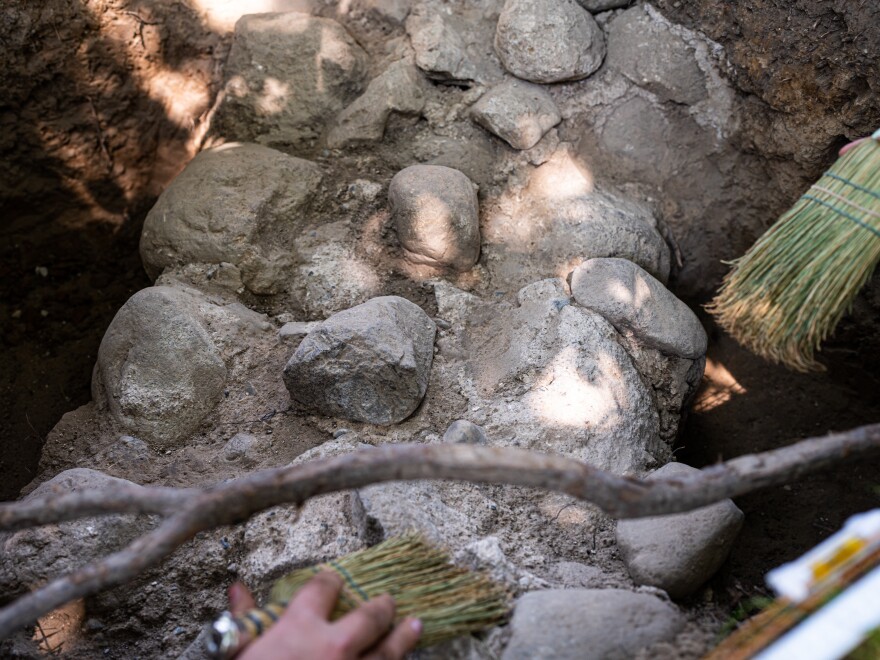When Stacey Camp, an anthropology professor at Michigan State University, learned there was a hard, impenetrable surface underground north of campus, she assumed it was just a large rock.
But historic maps hinted at something bigger. After careful digging, her team of campus archeologists unearthed parts of a foundation that once belonged to the university's original observatory.
"What's exciting about this particular find is that it tells the story of how our campus and how higher education has changed so radically over time," Camp said.

The former observatory was built in 1881 by Rolla Carpenter, a former student and professor who taught a host of topics from mathematics, astronomy and French. He advocated for an observatory after the university acquired its first telescope. At the time, students would observe the sky on the roof of a campus building.
Fast forward to this past May, 142 years later. Construction workers were drilling hammock posts outside a residence hall when they hit something unusually hard beneath the ground. The crew later phoned the school's Campus Archaeology Program, tasked with investigating and preserving buried archaeological sites discovered accidentally on campus.
The program's staff cross-referenced the location with historic maps, which suggested that it was in same area of the university's first observatory.
"That could have been easily dismissed if we hadn't had some historic maps and knowledge of that area," said Camp, who is the director of the program.
A group of undergraduate and graduate students spent the next several weeks documenting, digging and excavating around the site until it became clear that the curious impenetrable surface was indeed the foundation of a previous school building.

On Monday, results from a ground-penetrating radar survey revealed that most of the foundation is intact. According to Camp, its condition is a "miracle" given all the changes and construction that have taken place on campus.
"You've got a sidewalk next to it. You've got a road there. You've got a dormitory, a basketball court," she said. "All of that has destroyed a lot of our historic space on campus."
The discovery was especially special for Levi Webb, a rising senior studying astrophysics and anthropology.
Webb did not know about the former observatory before he joined the archaeology project. The search left him wondering about the students who frequented the space and their shared interest in astronomy.
"Each of these people had a life just as vibrant as mine," he said. "That's all it takes, a little discovery to unearth this complete, complex history."

The project also was a boon for Webb's job at the current observatory. During a recent tour, Webb shared what his team uncovered and the differences between the old and new buildings.
"We have always talked about the history of the current observatory, which was built in 1969," he said. "But now, I can enrich that with, this has gone back even farther than 1969, all the way back to 1880."
Next summer, the program is expected to run a larger excavation project to uncover more of the foundation and possible artifacts along the way.
Copyright 2023 NPR. To see more, visit https://www.npr.org.




